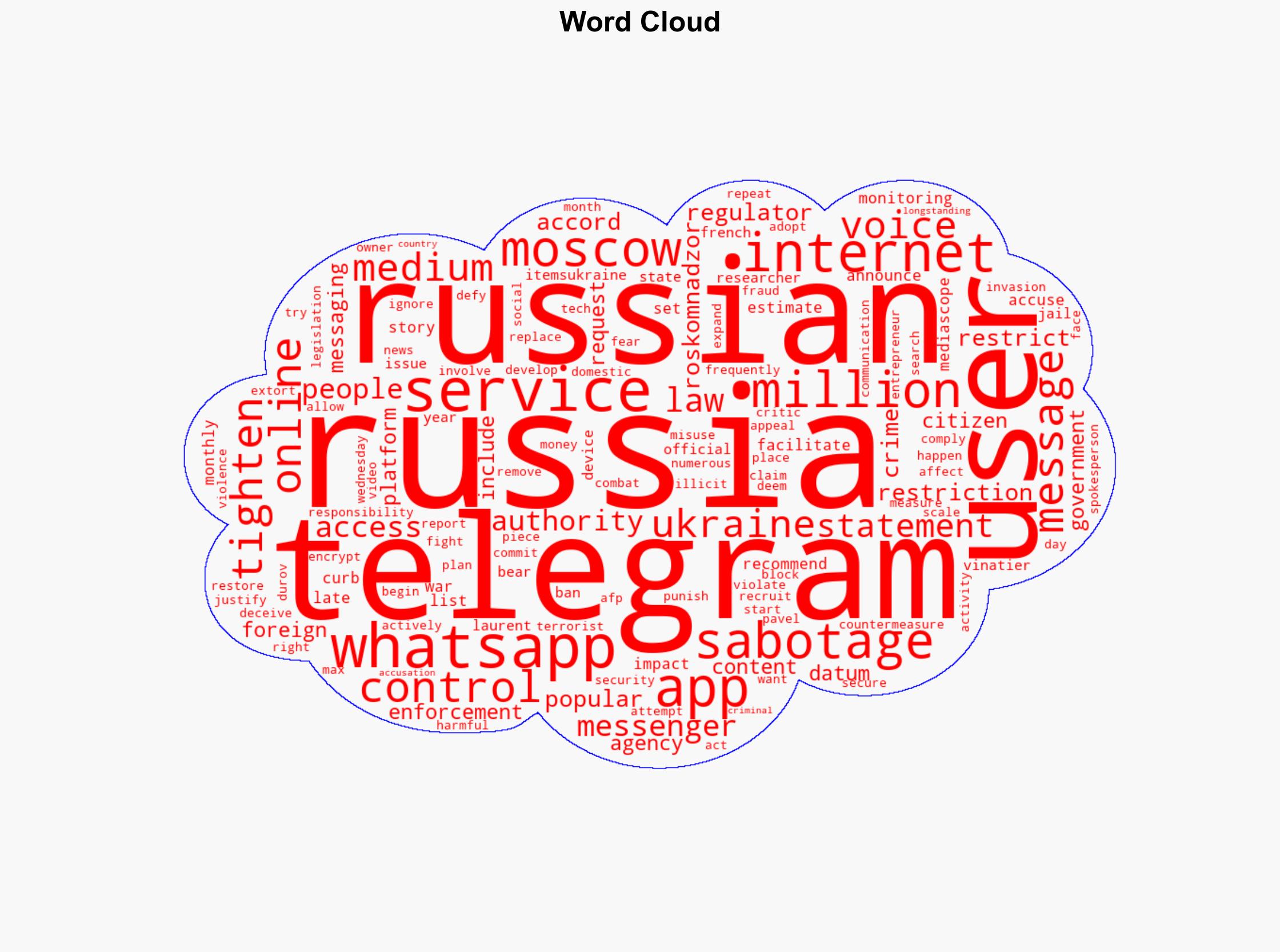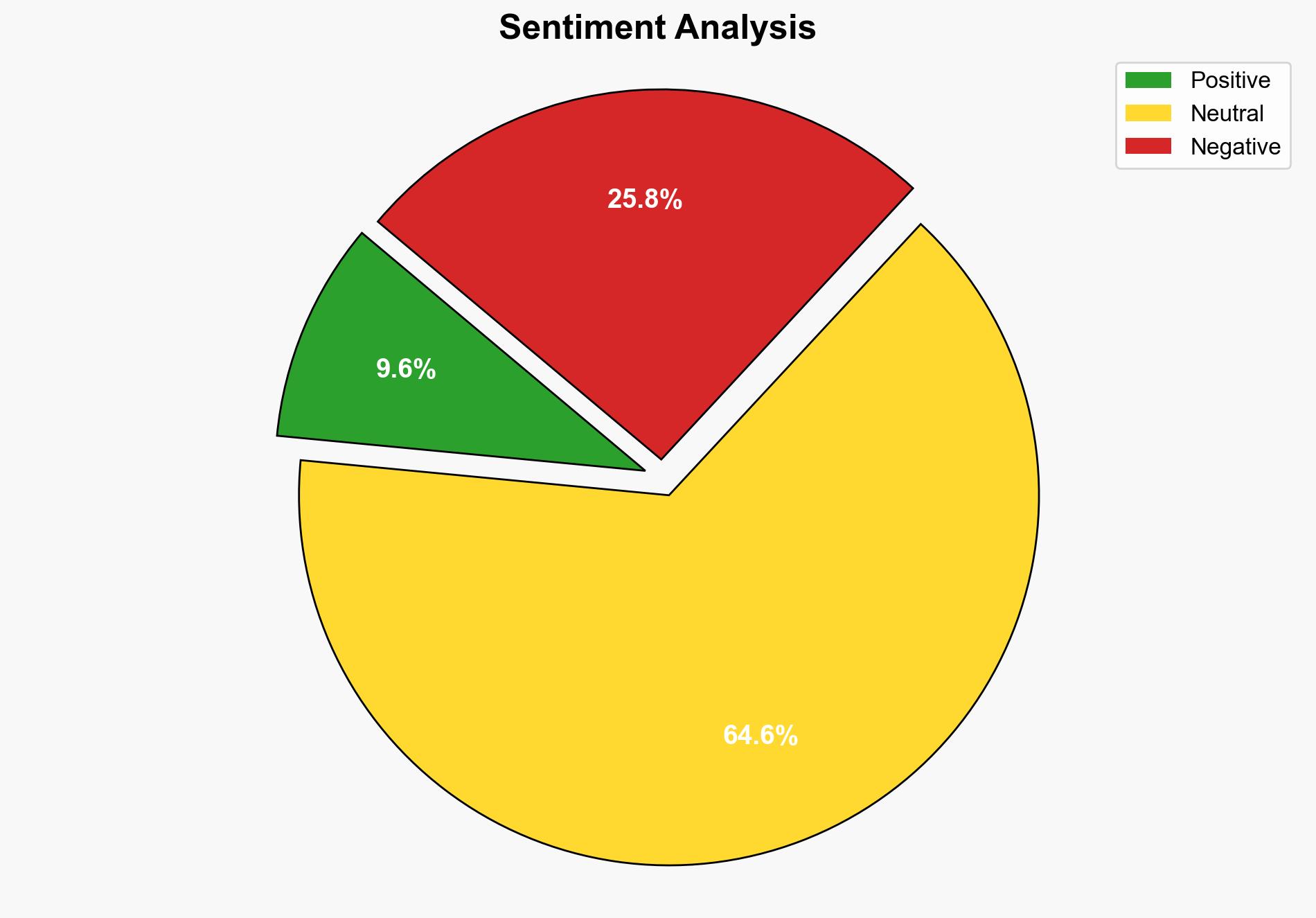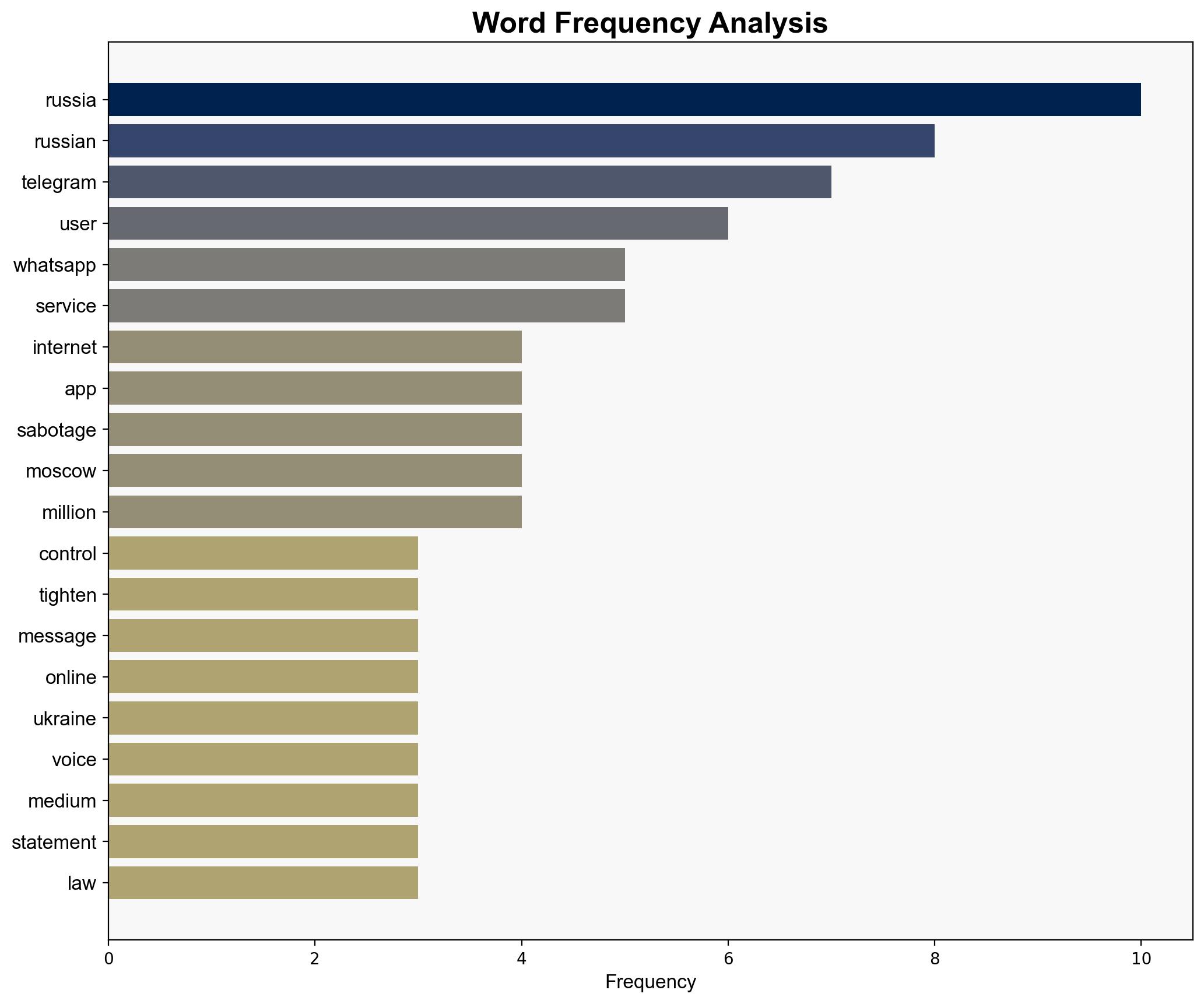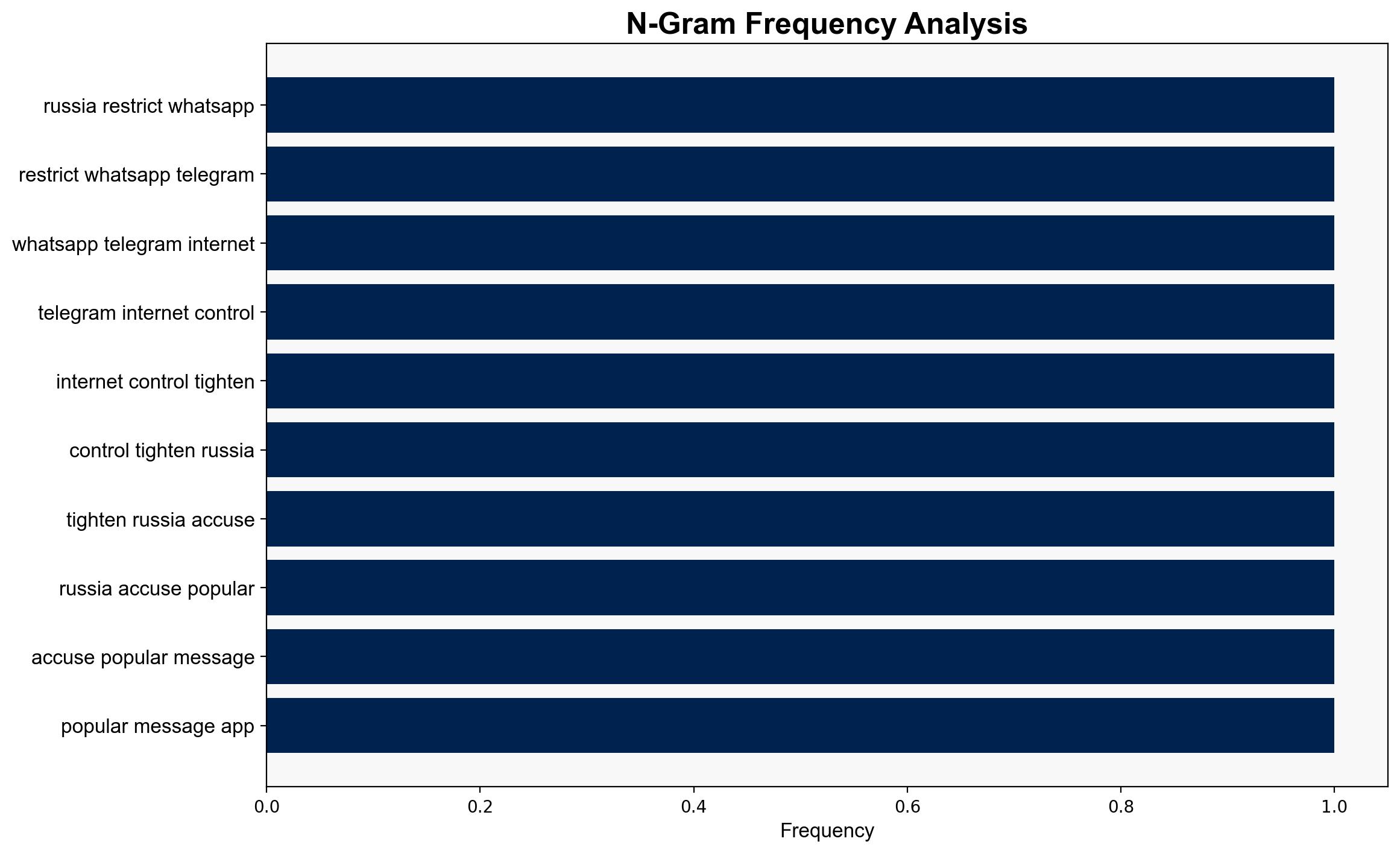Russia restricts calls on WhatsApp Telegram as internet control tightens – Al Jazeera English
Published on: 2025-08-14
Intelligence Report: Russia restricts calls on WhatsApp Telegram as internet control tightens – Al Jazeera English
1. BLUF (Bottom Line Up Front)
Russia’s recent restrictions on WhatsApp and Telegram voice calls are likely part of a broader strategy to enhance state control over digital communications, citing security concerns. The most supported hypothesis suggests that these actions are primarily aimed at increasing governmental surveillance capabilities under the guise of national security. Confidence in this assessment is moderate due to the potential for alternative motives. Recommended action includes monitoring the implementation of these restrictions and assessing their impact on both domestic and international communications.
2. Competing Hypotheses
Hypothesis 1: The restrictions are a genuine attempt to curb criminal activities and sabotage efforts within Russia, as claimed by the government. This is supported by the official narrative and the historical context of security concerns during the ongoing conflict with Ukraine.
Hypothesis 2: The restrictions are primarily a pretext for increasing state surveillance and control over digital communications, aimed at suppressing dissent and limiting the influence of foreign platforms within Russia. This is supported by the broader pattern of internet control measures and the strategic interest in replacing foreign apps with domestic alternatives.
3. Key Assumptions and Red Flags
– Assumption for Hypothesis 1: The Russian government has credible evidence linking these messaging apps to criminal activities.
– Assumption for Hypothesis 2: The primary goal of the Russian government is to enhance surveillance rather than address specific security threats.
– Red Flags: Lack of transparent evidence provided by the Russian authorities to substantiate claims of criminal activities facilitated by these apps. Potential bias in media reporting and the possibility of misinformation.
4. Implications and Strategic Risks
– Increased internet control may lead to heightened tensions between Russia and Western tech companies, potentially impacting diplomatic relations.
– Escalation of cyber warfare tactics as Russia seeks to replace foreign apps with domestic alternatives, increasing the risk of retaliatory cyber actions.
– Potential economic impact on businesses relying on these platforms for communication, leading to a shift towards less secure or less efficient alternatives.
– Psychological effects on the Russian populace, potentially increasing public dissent or compliance depending on the perceived legitimacy of the restrictions.
5. Recommendations and Outlook
- Monitor the enforcement and compliance levels of these restrictions to assess their effectiveness and impact.
- Engage in dialogue with Russian authorities to clarify the evidence supporting their claims and explore potential compromises.
- Prepare for potential escalation in cyber activities by enhancing cybersecurity measures and international cooperation.
- Scenario Projections:
- Best Case: Restrictions are lifted or eased following international pressure and dialogue, restoring communication channels.
- Worst Case: Further tightening of internet controls leads to significant disruptions in communication and increased geopolitical tensions.
- Most Likely: Restrictions remain in place with gradual adaptation by users and businesses, leading to a new status quo.
6. Key Individuals and Entities
– Laurent Vinatier
– Pavel Durov
– Roskomnadzor
7. Thematic Tags
national security threats, cybersecurity, counter-terrorism, regional focus





